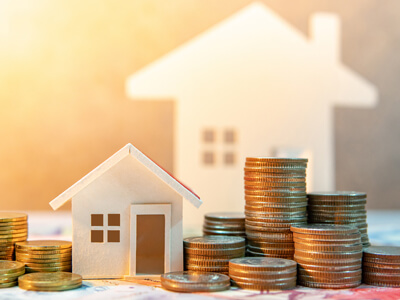Back to News and Blog
What is Escrow?
Posted June 26, 2020

If you have ever shopped for a house, you have heard of the term “escrow” or the phrase “in escrow.” It’s usually used regarding real estate, but it is also applicable to other large purchases, especially when you want to make sure you’re getting what you paid for (or that you’ll actually get your money when selling something). Before you get overwhelmed with financial talk, learn more about what exactly escrow is and how it benefits you on both sides of a transaction.
The Basics
According to the experts at Zillow, “Escrow is when an impartial third party holds on to something of value during a transaction.” In this modern world where you can easily create a new personality or cover up a home’s flaw with photo editing, escrow is a way to protect you as a seller or buyer. Instead of giving down payment money to a seller, a third party (usually a dedicated escrow company, officer, or lending institution) holds on to the money in the transaction until it is complete and you and the other person are reasonably satisfied. This way the seller can’t take the money and run or take their item off the market without consequences.
Buying a Home
If you want to buy a home, you make an offer to the seller. When they accept it, you typically write an earnest money check. Cathie Ericson of Realtor.com explains this is usually 1-3 percent of the agreed price of the property that you put forward as a good-faith gesture. It tells the owner that you’re serious about the purchase. Instead of the homeowner getting to cash it and use it right away, you give it to the escrow entity. It cashes the check to prove that what you wrote doesn’t bounce and informs the seller.
From there, the escrow usually acts as a referee, explains Justin Pritchard of The Balance. It makes sure that you and the other person fulfill your duties before the sale of a house is final, like ordering a home inspection and securing a mortgage. When you satisfy all requirements, you close on the home and the sale is final. The money in escrow is then usually put toward the purchase price of the home or something else that helps you, the buyer.
If you exit the deal in a manner not allowed by the escrow agreement, the current homeowner gets to keep the earnest money for their wasted time, according to Zillow. On the other hand, if they break their part of the arrangement, you get to walk away with your money instead of it being held hostage in negotiations.
After the Purchase
After you finally sign the papers and get the keys, you may think the home is all yours. However, if you have a mortgage, the lending institution really owns it and could utilize an escrow account. When a lending institution takes on a mortgage for you, the house itself is collateral because the institution can take the house back in foreclosure and sell it to resolve an unpaid debt. An investment this large needs homeowner’s insurance, and buildings have property taxes owed to the government. Brian O’Connell explains for The Street that if you fail to pay for either of these, it can expose the lender to extra risks like loss of value and a government penalty on the house for unpaid taxes called a lien.
To protect itself, the mortgage loan servicer might decide to make these payments on your behalf to make sure they’re submitted properly and on time. You will then pay into an escrow account with your monthly mortgage payment, and the mortgage holder will use that specific fund to cover taxes and insurance.
Escrow is a handy tool for making big purchases that take time to pay off. To learn more about the process and constructing escrow agreements, talk to your realtor or a financial advisor.